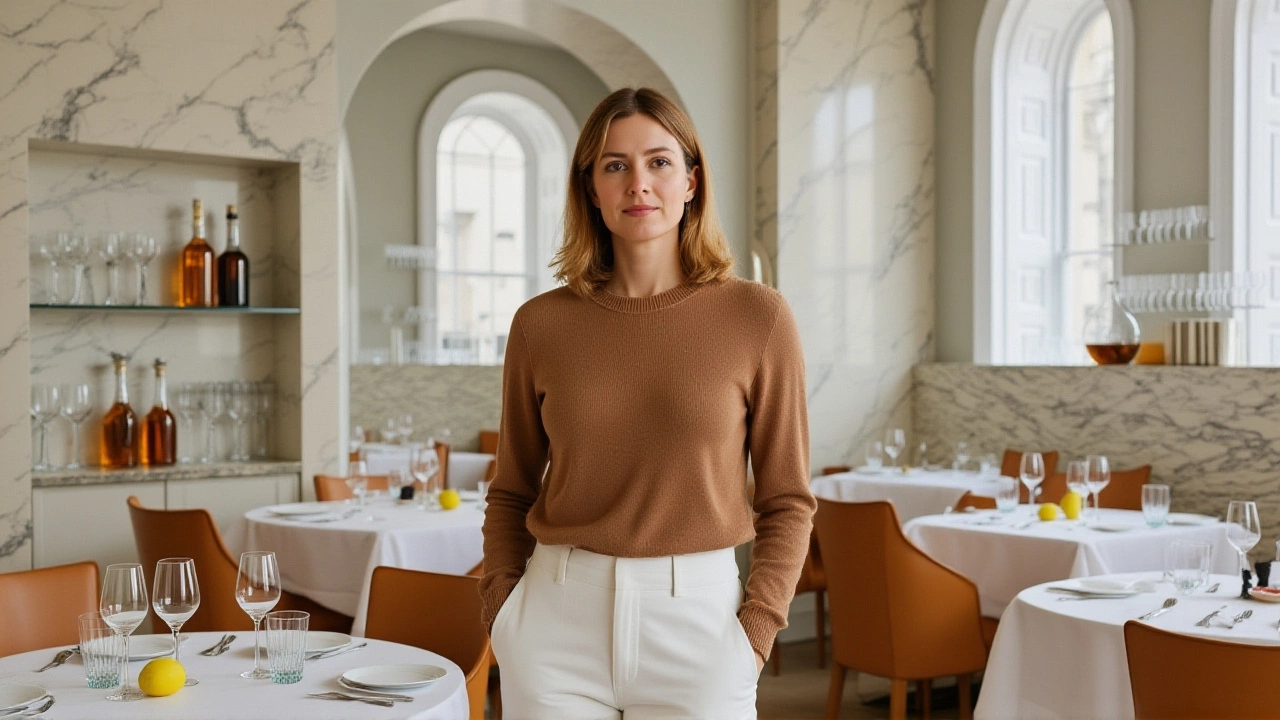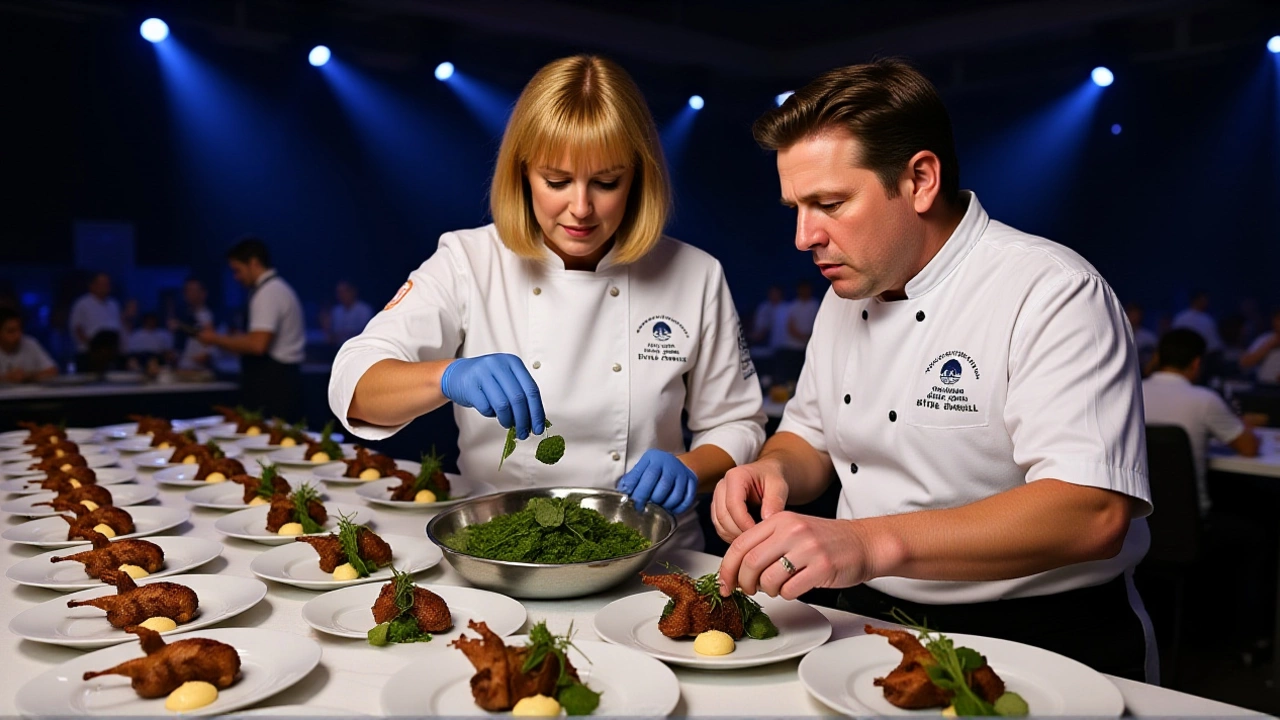When Skye Gyngell stepped into the kitchen at Petersham Nurseries Cafe in Richmond, London, in 2009, she didn’t just cook — she redefined what Australian cuisine could be on the world stage. Three years later, in 2011, the Michelin Guide awarded her restaurant its coveted star — making Gyngell the only female Australian chef ever to earn that distinction. She died on or shortly before Monday, November 24, 2025, in London, after a quiet, years-long battle with a rare form of skin cancer. The news, first reported by 7NEWS Australia in a brief YouTube video, sent ripples through global culinary circles. She was 62.
A Legacy Etched in Plates, Not Just Awards
Gyngell’s rise wasn’t loud or flashy. She didn’t seek TV stardom like some of her contemporaries. Instead, she built a reputation through patience, precision, and an almost poetic reverence for seasonal ingredients. Her menu at Petersham Nurseries — a converted greenhouse nestled in a leafy London suburb — was a quiet revolution. Think roasted beetroot with goat’s curd and hazelnut oil, or lamb with wild thyme and pickled elderberries. It wasn’t about spectacle. It was about truth on a plate. That Michelin star wasn’t just a trophy. It was a signal: Australia, long seen as a culinary backwater by European elites, had produced a chef who could hold her own in the most rigorous kitchens of the world. And she did it as a woman — in a field still dominated by men, especially at the highest echelons. No other Australian woman has matched that honor since. Not one.Family Roots in Media, Career in Food
Her story begins in Sydney, where she was born in 1963. Her father, Bruce Gyngell, was the first face ever broadcast on Australian television — appearing on TCN-9 on September 16, 1956. That’s not just trivia. It’s context. She grew up in the glare of a new national medium, surrounded by stories being told for the first time. But instead of cameras, she chose knives. Instead of headlines, she chose flavors. She trained in Paris and London, worked under legends like Michel Roux and Pierre Koffmann, then spent years refining her voice. Her cooking wasn’t Australian in the tourist brochure sense — no kangaroo or damper. It was Australian in its honesty: clean, uncluttered, deeply connected to land and season. She once told a journalist, "I don’t need exotic ingredients. I need good soil, good rain, and a cook who listens."A Quiet Tribute from a Culinary Giant
When news of her death broke, the most poignant response came from Jamie Oliver, the British chef and TV personality. "An amazing woman, incredible cook and kind-hearted person," he said simply — no grand speech, no social media storm. Just three honest words. That’s how those who knew her best remember her: not as a celebrity, but as someone who made others feel seen. Her passing leaves a void. Women in professional kitchens still face disproportionate barriers. The ratio of female Michelin-starred chefs globally remains stubbornly low — under 10% as of 2024. Gyngell didn’t just break glass ceilings; she showed others the path was walkable. She never gave interviews about gender. She just cooked — brilliantly — and let her work speak.
What’s Next for Australian Gastronomy?
There’s no official memorial yet. No public service announced. The details of her final days remain private, as she would have wanted. But her legacy is already being quietly carried forward. Chefs from Melbourne to Cairns are posting photos of their seasonal dishes with the hashtag #SkyeGyngellLegacy. The Petersham Nurseries Cafe remains open, its menu unchanged — a living tribute. The Michelin Guide has not yet issued a public statement, but insiders say her name will be remembered in their annual review. In 2011, she was the first Australian woman to earn the star. In 2025, she became the first to leave it behind.Why This Matters Beyond the Kitchen
Gyngell’s story is more than culinary history. It’s about quiet perseverance in a world that rewards noise. She didn’t have a Netflix series. She didn’t sell cookware. She didn’t tweet. But she made food that moved people — deeply, quietly, permanently. In an age of influencers and viral recipes, her life reminds us that greatness doesn’t always shout. Sometimes, it whispers — in the scent of rosemary, in the texture of perfectly roasted vegetables, in the stillness of a kitchen at dawn.Frequently Asked Questions
Why was Skye Gyngell’s Michelin star so significant?
Skye Gyngell was the only female Australian chef ever awarded a Michelin star — a distinction earned in 2011 at Petersham Nurseries Cafe. With fewer than 10% of Michelin-starred chefs globally being women, and Australia historically underrepresented in elite European rankings, her achievement broke both gender and national barriers in fine dining.
What was her cooking style known for?
Gyngell’s style was defined by seasonal, local ingredients and minimalist technique. She avoided flashy presentations, focusing instead on purity of flavor — roasted vegetables, delicate herbs, and artisanal dairy. Her menus reflected the rhythms of nature, not trends, earning praise for their emotional resonance and quiet elegance.
Did she have any other restaurants besides Petersham Nurseries Cafe?
While Petersham Nurseries Cafe was her most celebrated venue, Gyngell also consulted on projects in Sydney and Melbourne, including the opening of a small bistro called The Garden Table in 2017. She never opened a chain or branded empire, preferring to mentor young chefs one-on-one — often anonymously.
What impact did her father have on her career?
Her father, Bruce Gyngell, was the first person to appear on Australian television in 1956. While she didn’t follow him into media, she absorbed his understanding of public presence — how to communicate meaning without spectacle. She once said, "He taught me that the most powerful stories are told in silence."
Will her Michelin star be passed on to another chef?
No. Michelin stars are awarded to restaurants, not individuals. Petersham Nurseries Cafe retains its star as long as it meets the guide’s standards. However, Gyngell’s absence has led to speculation about its future direction. The current head chef, who worked under her for 12 years, says the kitchen will honor her philosophy — but not replicate it.
How is the Australian culinary community responding?
Across Australia, chefs have organized informal gatherings — dinner tables set with only seasonal produce, no speeches, just shared meals. The Australian Culinary Federation plans a private memorial in Sydney next month. No public events are scheduled, respecting Gyngell’s lifelong preference for privacy over publicity.
